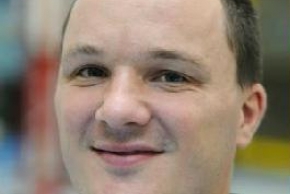Congratulations to Ludovic CHAMOIN for the award of a new ERC Consolidator Grant.
Acronym : DREAM-ON
Title: Structural damage: robust, real-time, and data-driven adaptive modeling for online control
Abstract
The ambition of the project is to move from smart materials to smart, connected mechanical structures that can monitor their health online and adapt autonomously during use.
Real-time digital servoing concept
The structures targeted here are those made of concrete or composite materials, subject to damage phenomena.
The effective supervision of such structures is a real challenge, particularly due to the complexity of the physical phenomena studied (localised, non-linear, multi-scale, multi-physical) and the need for reliable real-time decision-making, all in an uncertain context.
The concept of the project is to build a synergy between advanced measurement technologies (optical fibres embedded in the material), control by micro-controllers, and the most efficient modelling and simulation tools in numerical mechanics. This dynamic interaction between the real structure and a virtual simulator (digital twin) aims to take advantage of all the knowledge available on the structure and the physics that describes it to detect damage early enough, make an accurate diagnosis (as close as possible to reality), and anticipate the decision to be taken that is best suited to the situation.
To allow this dynamic interaction between the physical system and its digital twin, while being compatible with the constraints of real time and robustness, a multi-disciplinary methodology will be followed. It will mobilise various skills combining experimental mechanics, modelling, numerical methods and computer sciences.
It will focus on efficient data assimilation, adaptive modelling allowing a fair simulation at the right cost, and guaranteed control synthesis. In particular, it will use artificial intelligence (AI) tools, coupled with a detailed knowledge of the physics of the observed phenomena, in order to efficiently enrich the models with data.
The methodology will be implemented and tested in a dedicated computer platform, then validated on a representative and original experiment (proof of concept), which will aim to preserve the integrity of a structure under controlled loading.
The project will have strong scientific and industrial (transport, energy) spin-offs in the health control of mechanical structures, for greater reliability but also greater performance, with optimised maintenance and the ability to operate in degraded mode. The project's advances will also benefit a wide range of engineering fields for the design of modern, self-regulating systems.
The project will mobilise several LMT researchers (notably Emamanuel Baranger & Martin Poncelet) around the project leader, as well as Laurent Fribourg from the LSV who will bring his skills in control synthesis.
List of projects in physics and engineering sciences
